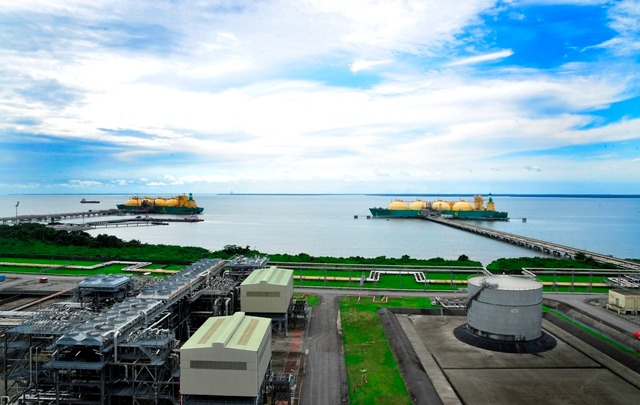Nigeria LNG said that it is still producing liquefied natural gas at its 22 mtpa Bonny Island plant despite a force majeure it declared last week due to flooding.
“The company’s plant is in operation though at a limited capacity, due to reduced gas supply from some of its upstream gas suppliers,” the company said in a statement.
Nigeria LNG said that none of the company’s assets on Bonny Island or in any of its host communities were impacted by the flood.
“The force majeure is as a consequence of a similar notice by upstream gas suppliers due to the impact of flood in their production facilities,” it said.
Nigeria LNG added that it is working with all critical stakeholders on mitigating the impact on product deliveries and that it continues to supply LPG to the domestic market for now from the limited production.
LNG buyers include Galp, Shell, and others
Portuguese energy firm and LNG player Galp said on October 17 it may face additional sourcing disruptions after Nigeria LNG declared force majeure on shipments.
Back in 2020, Nigeria LNG and Galp signed a 10-year supply deal for some of the remarketed volumes from NLNG’s trains 1, 2, and 3. The deal is for about 1 mtpa.
The Portuguese firm also has a deal for 1.42 mtpa of LNG from trains 4 and 5, according to GIIGNL data.
Other buyers of LNG volumes produced at the six-train Bonny plant include TotalEnergies, Eni, Vitol, Naturgy, Endesa, Pavilion Energy, and the largest buyer Shell, the data shows.
Nigeria LNG is a venture compromising of the Nigerian National Petroleum Corporation (49 percent), Shell (25.6 percent), TotalEnergies (15 percent) and Eni (10.4 percent).
Besides the six existing trains, Nigeria LNG is also adding the seventh production unit at the Bonny Island plant.
The NLNG Train 7 project consists of the construction of one complete LNG train and one additional liquefaction unit. The project also includes other associated utilities and infrastructures.
The new unit will add around 8 mtpa of capacity to the 22 mtpa Bonny Island facility.

